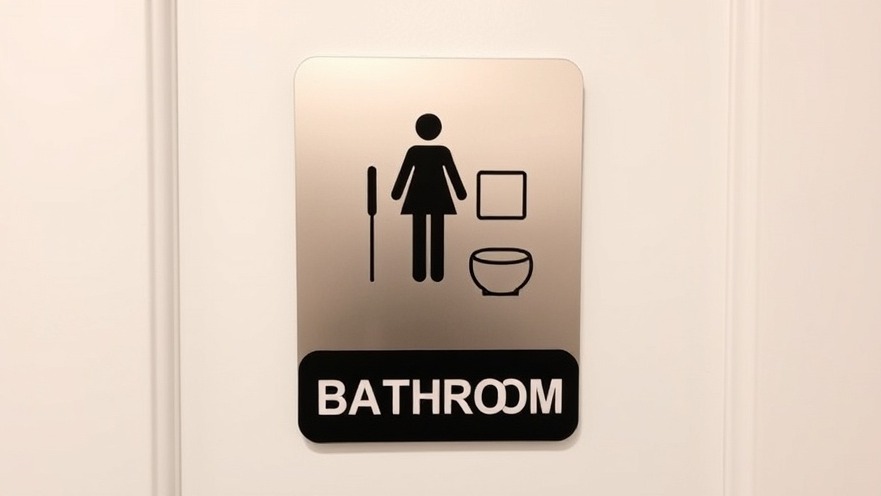
Controversial Bathroom Bill Advances in Texas Legislature
The Texas Senate State Affairs committee has made significant strides in advancing Senate Bill 7, a proposal that seeks to restrict restroom access based on birth gender in government and educational institutions. This legislative movement follows the directive from Governor Greg Abbott to prioritize similar provisions during the special session of the Texas Legislature.
Support and Opposition: Voices from Both Sides
A passionate public hearing saw over 100 individuals share emotional testimonies regarding the implications of SB 7. Proponents of the bill, including its author Sen. Mayes Middleton, argue that it protects women's safety in private spaces. Middleton has framed the legislation as a reflection of "biological and biblical truths," stating that it offers necessary enforcement mechanisms, including substantial fines for any organizations that violate its terms.
However, opponents counter that the bill fosters an environment of increased discrimination and anxiety, particularly for transgender individuals. Autumn Lauener, vice president of the Texas Transgender Nondiscrimination Scholars, highlighted the potential impacts of enforcement on personal safety and dignity, asserting that many would be forced back into environments that pose very real threats to their well-being.
The Fear of Surveillance and Discrimination
Testimonies from those against the bill expressed concerns that the effort to enforce compliance would lead to increased scrutiny and invasions of privacy. Critics fear that this bill, if passed, would not only marginalize transgender individuals but might inadvertently compel cisgender individuals to navigate heightened surveillance in public bathrooms as well. "I won't just lose access to a restroom. I'll lose access to the future in the state I worked so hard to build," Lauener lamented.
Protecting Women's Spaces: A Core Argument
Supporters such as Fran Rhodes of the True Texas Project assert that legislation like SB 7 is necessary to prioritize the privacy and safety of women in restrooms and changing rooms. They argue that accommodating the needs of a minority demographic, which they see as less than 1% of the population, compromises the comfort and security of the majority. The discourse presents an ongoing conundrum: how to balance the rights of a marginalized group with the perceived needs of the majority.
Potential Implications for Organizations
Should SB 7 become law, organizations could face a hefty financial burden. The bill stipulates escalating fines—$5,000 for first violations, increasing to $25,000 for subsequent breaches. This poses concerns not only for schools and government entities but also for family shelters and other service providers who fear the implications of being included in the same category as public restrooms.
Broader Context: The Legislative Landscape
The emergence of Senate Bill 7 is a part of broader legislative trends across the country, reflecting a contentious political climate surrounding transgender rights. Similar legislations have been debated in various states, leading to intense public discourse and rulings that will shape the realities of many American lives. Organizations advocating for LGBTQ+ rights have rallied against the normalization of such bills, viewing them as regression rather than progress in civil rights.
Preparing for the Future of Texas’ Legislative Actions
The ongoing discussion of SB 7 is indicative of a shifting legislative landscape in Texas, where issues of identity, privacy, and safety converge. As the bill progresses, communities will be watching closely to understand its full implications. The dialogue surrounding this issue is of utmost importance not just for Texas but as a reflection of values that resonate across American society.
Time for Advocacy and Awareness
As citizens invigorate their legislative contacts, it is crucial they voice their perspectives on such pivotal discussions. Whether advocating for the rights of transgender individuals or respecting the concerns of various constituencies, actively participating in the dialogue around SB 7 can alter its trajectory. Initiatives to educate and engage the community on these issues can foster a more inclusive environment that addresses the concerns of all affected parties.
Texas is at a crossroads in defining its social and legislative identity. For those invested in the outcomes of Senate Bill 7, the call to action is clear: remain engaged, informed, and vocal about the impact of these discussions.
 Add Element
Add Element  Add Row
Add Row 



Write A Comment